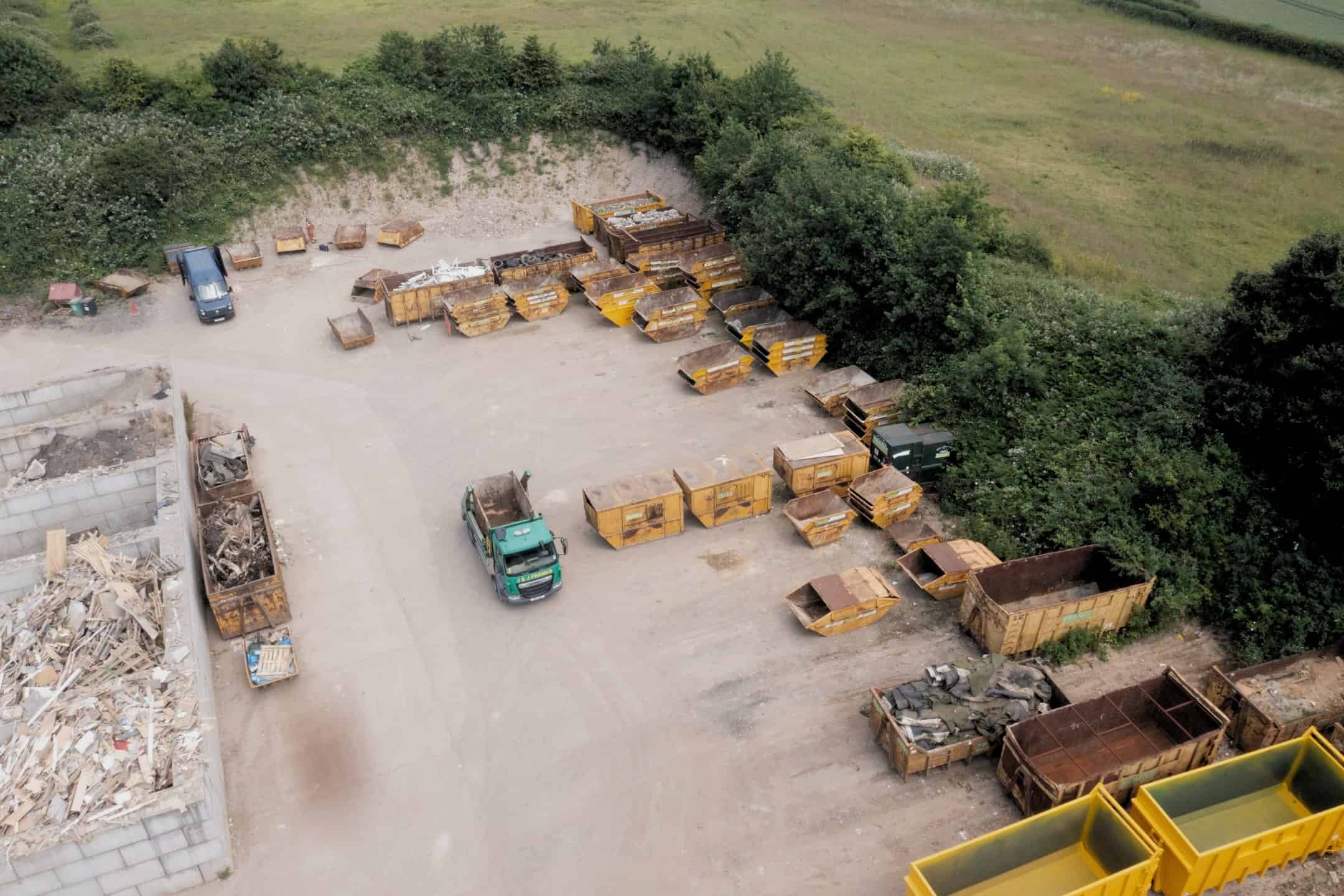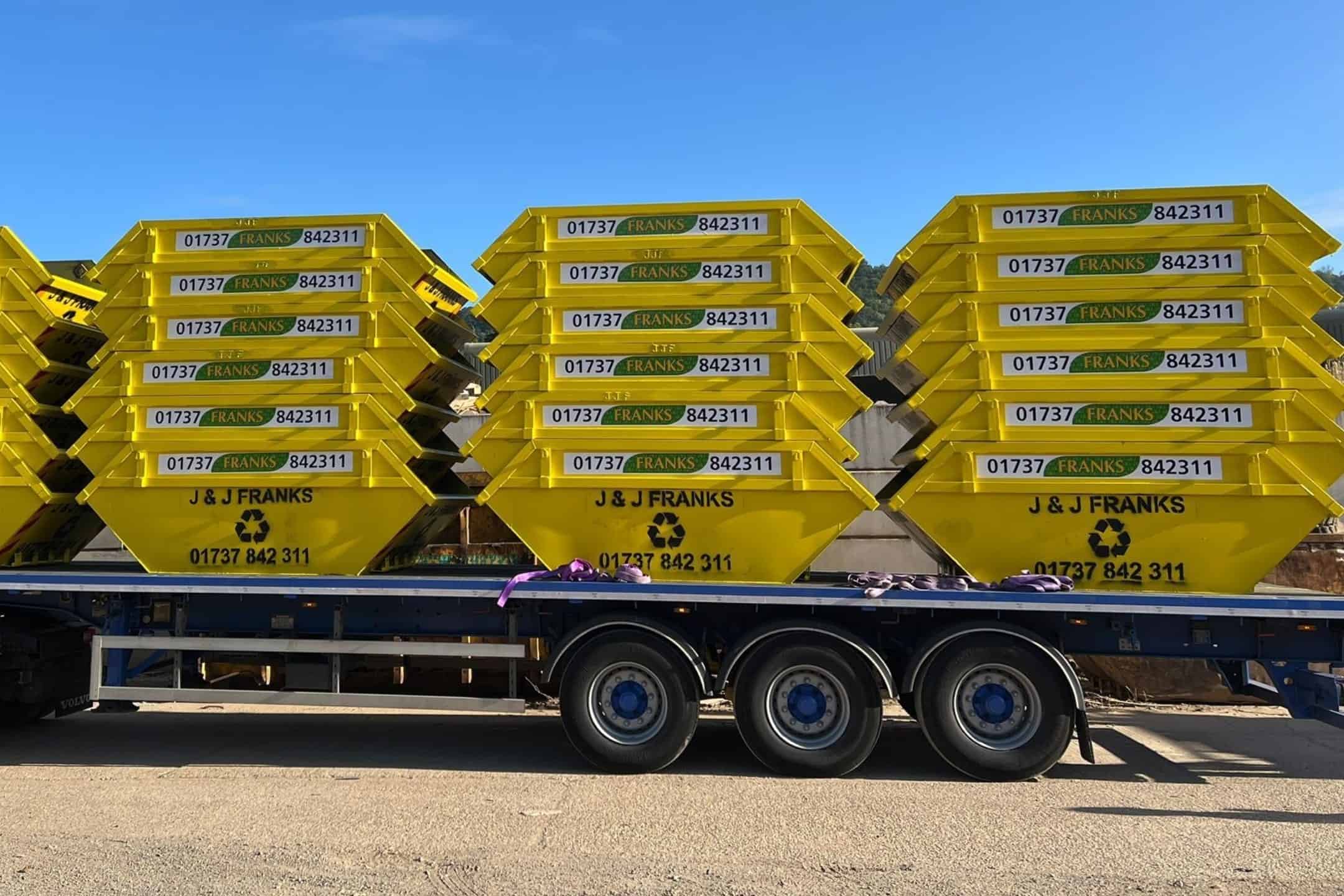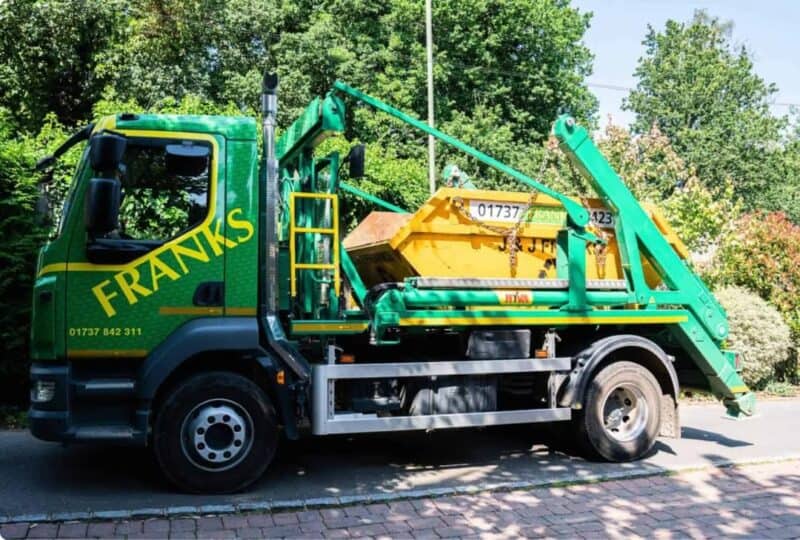When planning a garden project, one of the most critical considerations is managing the waste generated effectively. Selecting the right size for garden skip hire ensures efficient waste removal, cost-effectiveness, and minimal environmental impact. At J&J Franks, we offer a variety of skip sizes tailored to meet the specific needs of your garden project. Understanding the different sizes available and how to choose the right one can save you time, money, and hassle.
Understanding Skip Sizes
Garden skips come in various sizes, each suitable for different types and volumes of waste. Mini skips, typically ranging from 4 yards, are ideal for minor garden clean-ups, such as trimming hedges or clearing flower beds. These skips can hold approximately 20 to 30 bin bags of waste. For medium-sized projects, such as re-landscaping a garden or removing small amounts of soil, a midi skip of 4 to 5 yards is more appropriate, accommodating around 40 to 50 bin bags.
For larger garden overhauls, builder’s skips, which range from 6 to 8 yards, are more suitable. These skips can handle significant waste volumes, such as soil, old garden furniture, and large branches, holding between 60 and 80 bin bags. For extensive projects, like removing large quantities of soil or dealing with bulky waste, larger skips of 10 to 12 yards, and roll-on/roll-off (RORO) skips of 20 to 35 yards are necessary. These larger skips can hold 100 to 350 bin bags of waste, making them perfect for major renovations or commercial projects.

Estimating Waste Generation
Accurately estimating the amount of waste your garden project will generate is crucial for choosing the right garden skip size. For minor updates, such as tidying up flower beds or trimming small hedges, the waste generated is usually minimal, making a mini skip sufficient. Medium projects, like hedge trimming or planting new shrubs, generate a moderate amount of waste, best handled by a midi skip.
Major renovations, such as removing old decking or overhauling the garden, produce substantial waste volumes. Builder’s skips or larger options are ideal for these projects. For extensive overhauls involving significant landscaping work or complete garden clear-outs, RORO skips provide the necessary capacity to manage the waste efficiently.
Factors Influencing Garden Skip Hire Selection
Several factors influence the appropriate skip size for your garden project. The scope of the project is the primary factor. Minor projects require smaller skips, while extensive renovations or landscaping demand larger skips. The type of waste also plays a role. Light debris, like grass cuttings, needs less space, whereas bulky items, like old garden furniture or tree trunks, require larger skips.
Space availability for placing the skip is another consideration. Smaller skips fit easily on driveways or in gardens, whereas larger skips might need more space and potentially a permit if placed on public property. Budget constraints also influence garden skip size selection. While smaller skips are more affordable, underestimating waste volume can lead to additional hires, increasing overall costs. Hence, it’s often cost-effective to hire a slightly larger skip than anticipated.
Consequences of Choosing the Wrong Skip Size
Choosing the wrong skip size can lead to several problems. A skip that’s too small may overflow, causing safety hazards and potentially incurring additional charges for overfilled skips. On the other hand, a skip that’s too large may result in underutilisation, meaning you pay for unused space, which is not cost-effective. These issues can also lead to project delays if additional skips need to be arranged due to underestimating waste volume.

Mixing Different Types of Waste
Generally, you can mix different types of garden waste in one skip. Most garden skips can handle various waste types, including soil, grass cuttings, branches, leaves, old decking, and garden furniture. However, some items, such as hazardous waste or electrical items, may not be allowed. It’s always best to check with your skip hire provider for specific restrictions. To maximise recycling, try to segregate recyclable materials where possible. Some garden skip hire companies like us at J&J Franks offer specialised recycling services, ensuring that as much waste as possible is repurposed or recycled.
Professional Assistance in Choosing the Right Skip Size
Consulting with a professional garden skip hire company like J&J Franks can provide invaluable assistance in choosing the right skip size. Experienced professionals can assess your project needs and recommend the most suitable skip size based on the scope and type of waste. They can also help you accurately estimate the amount of waste your project will generate, ensuring you choose the right skip size. Additionally, skip hire companies offer flexible solutions, such as adjustable hire durations and various skip sizes, to meet your specific project requirements.
Reputable skip hire companies, like J&J Franks, prioritise recycling your waste to ensure your waste is managed sustainably, with minimal landfill use. They can also assist with obtaining necessary permits if your skip needs to be placed on public property, ensuring compliance with local regulations.
To conclude, choosing the right size for garden skip hire is essential for efficient and cost-effective waste management. By considering factors such as project scope, waste type, space availability, and budget, you can select the appropriate skip size to meet your needs. Consulting with a professional skip hire company, like J&J Franks, can provide expert guidance and flexible solutions to ensure your garden project runs smoothly.
For more information on our garden skip hire services, please contact our team for personalised advice today.








